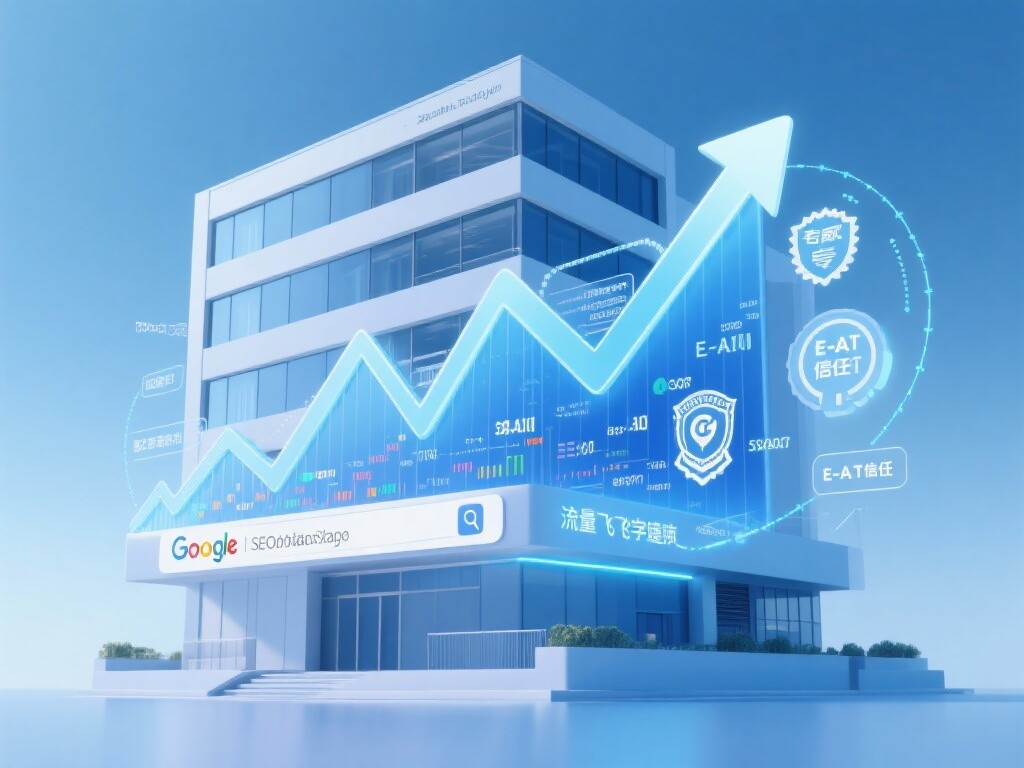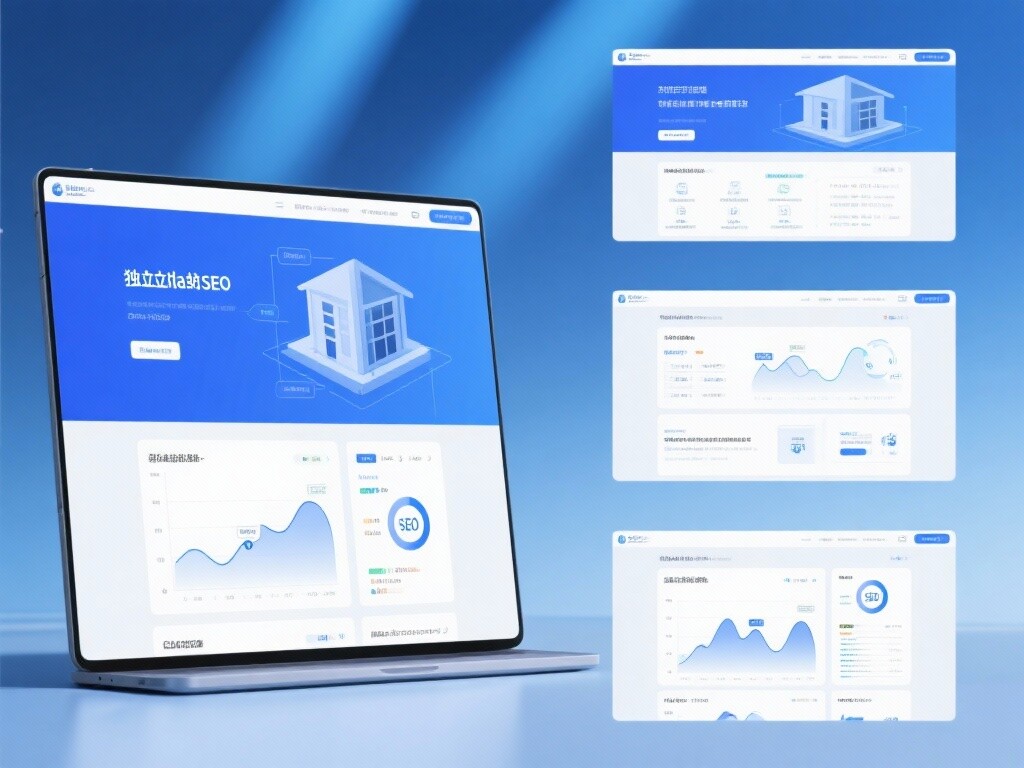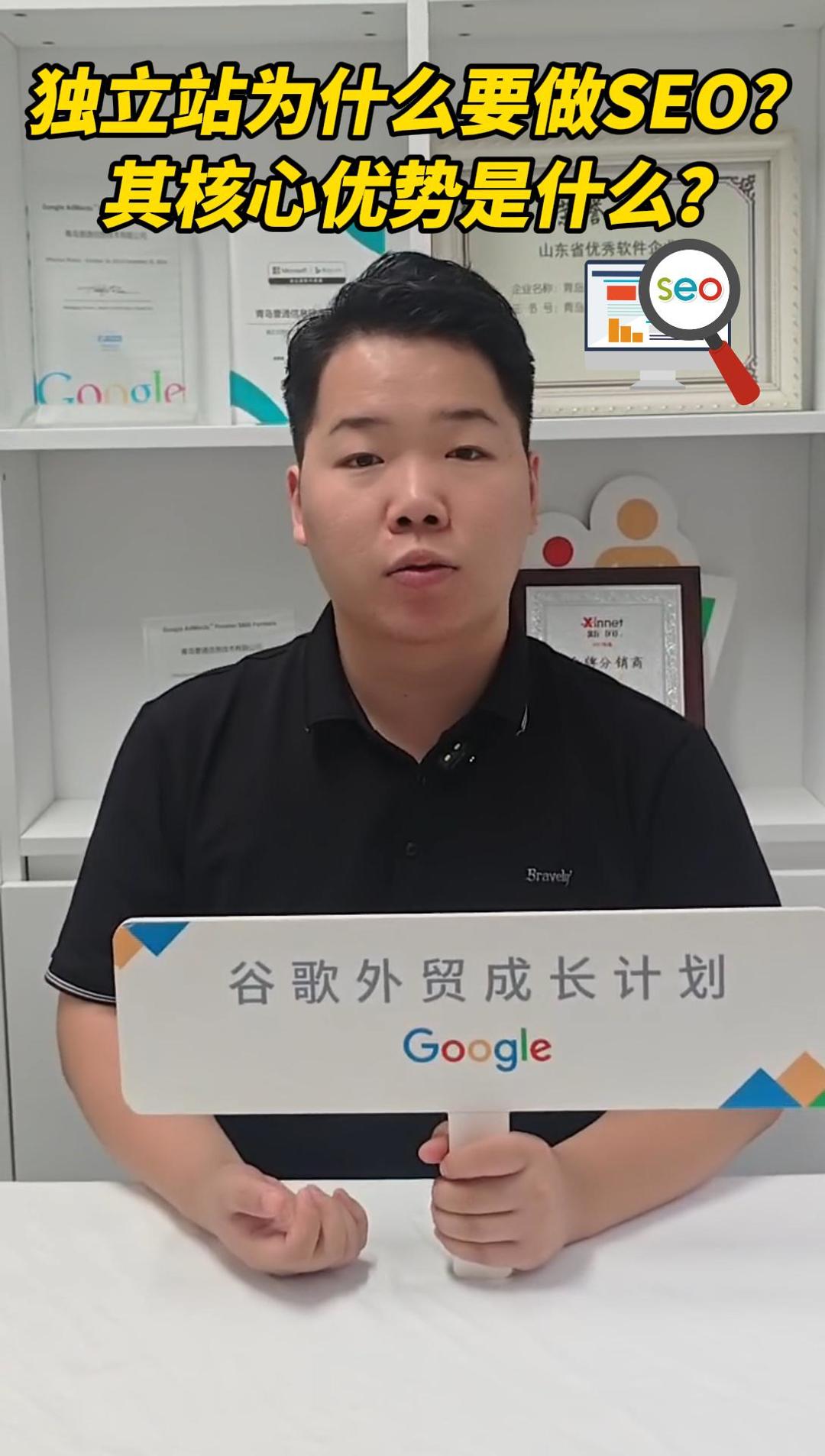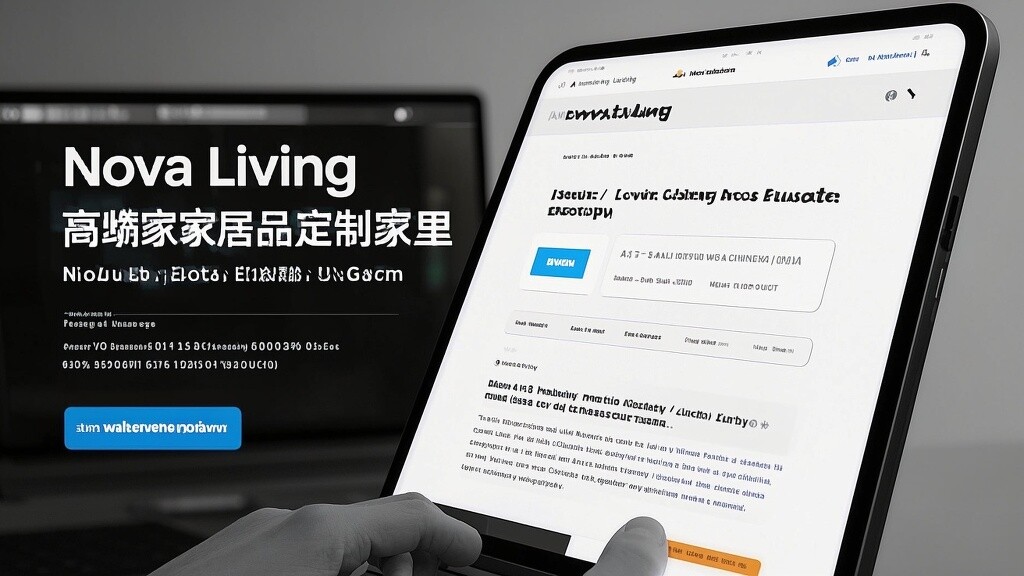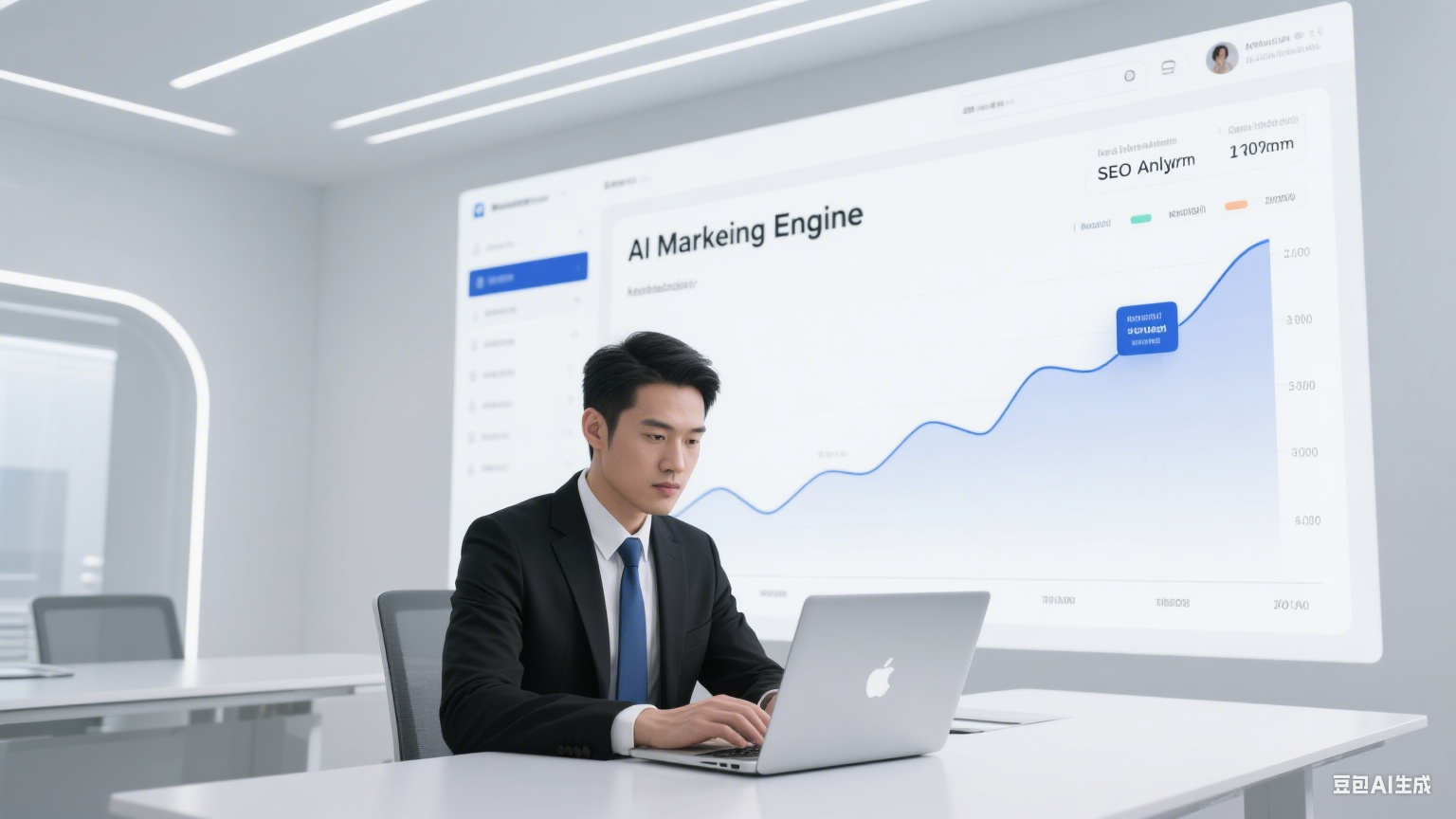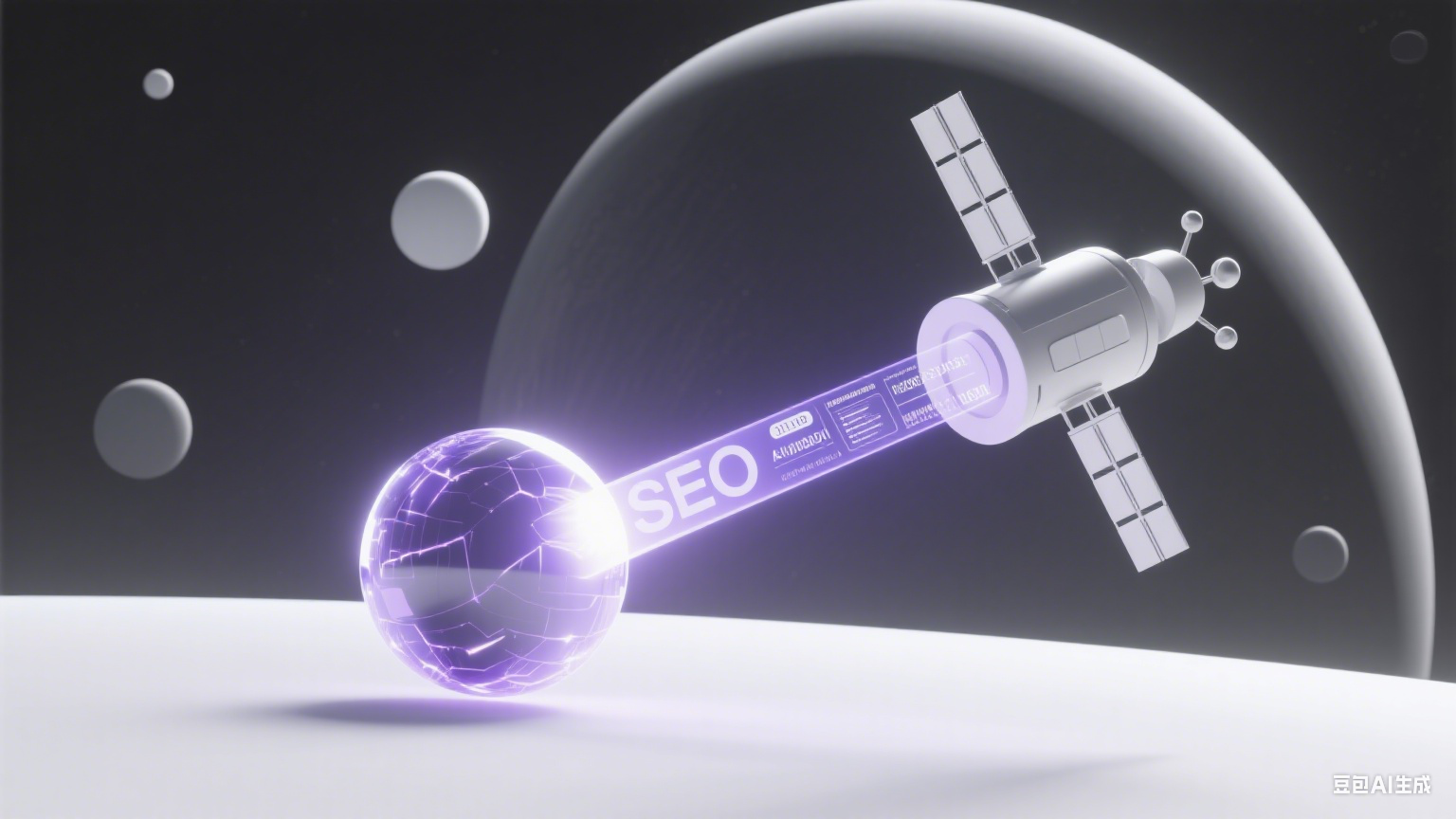Definition of Standalone Website SEO: A Self-Owned Brand Traffic Strategy Centered on Search Engine Optimization
Standalone website SEO refers to a professional strategy targeting independent brand official websites (such as D2C e-commerce sites or B2B foreign trade sites) that do not rely on any third-party e-commerce or social platforms. It revolves around the ranking algorithms of major global search engines like Google, conducting systematic technical optimization, content optimization, and external link building to enhance the visibility, authority, and traffic quality of the website in organic search results.
Core Goals and Value of Standalone Website SEO:
Traffic Ownership: Break free from the traffic rules and commission restrictions of platforms (e.g., Amazon, Alibaba, TikTok) and guide customers to your own private domain.
Brand Asset Accumulation: Through precise keyword rankings and high-quality content, transform the website into an industry authority, accumulating irreplicable digital assets.
High-Intent Conversion Traffic: Traffic captured via SEO comes from users with active searches and clear needs. Its **conversion rate and customer lifetime value (LTV)** are typically higher than paid ads.
Cost Efficiency: Although initial time investment is required, once rankings are secured, SEO traffic is sustained and free, with long-term ROI far exceeding paid channels.
The Essence of Standalone Website SEO:A long-term investment that wins search engine trust and user recognition by optimizing website technology and content quality.
History of Standalone Website SEO: From Keyword Stuffing to the E-E-A-T Trust Framework
The evolution of standalone website SEO reflects the maturation of search engine algorithms, shifting from a focus on **quantity (Keywords)** to **quality (E-E-A-T)** and **user experience (UX)**.
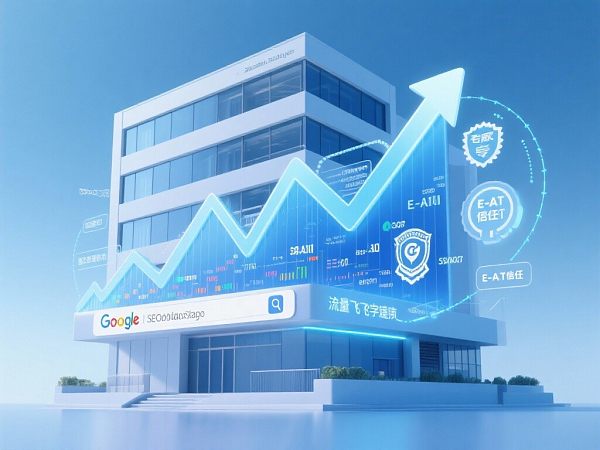
1. Early Stage: Keyword Stuffing and Link Quantity Reign (1990s-2005)
Technical Features: Search engine algorithms were simple, relying mainly on page keyword density and external link quantity to determine rankings.
Operational Tactics: Standalone sites widely adopted hidden text, keyword stuffing, and other “black-hat” techniques, while link farms flourished.
2. Content Relevance and Authority (2005-2015):
Algorithm Revolution: Google introduced core updates like Panda and Penguin, cracking down on low-quality content and spam links.
Operational Shift: Standalone website SEO pivoted to high-quality, original content and relevant link building, emphasizing site structure and navigation optimization.
3. Mobile-First and User Experience (2016-2020):
Mandatory Standard: Google launched **“Mobile-First Indexing”**, making **responsive design** a prerequisite for SEO.
Technical Depth: Emphasis on site speed, HTTPS security protocols, and user experience (UX), with standalone sites optimizing code simplicity and performance.
4. E-E-A-T and Core Web Vitals-Driven Era (2020–Present):
Trust Foundation:E-E-A-T (Experience, Expertise, Authority, Trustworthiness) became critical for high rankings, especially in **YMYL (Your Money Your Life)** industries.
Performance Optimization:Core Web Vitals emerged as a core ranking metric, shifting standalone site operations toward granular optimizations for technical performance and load speed.
Trend:Topic Clusters and **semantic search** became mainstream, requiring standalone sites to build comprehensive, authoritative content with both depth and breadth.
Technical Principles of Standalone Website SEO: Three Core Engines Driving Rankings
A successful standalone website SEO strategy requires meticulous management across three domains: technology, content, and external signals.
1. Technical SEO Engine: Website Crawlability and Performance
Crawl and Indexing Efficiency: Ensure the site has a clear structure, standardized URLs (Canonical Tags), and uses XML Sitemaps to guide crawlers.
Core Web Vitals Optimization: This is foundational for rankings. Optimize server response time (TTFB), image loading strategies, and critical CSS to ensure **LCP (Largest Contentful Paint)** and **INP (Interaction to Next Paint)** meet excellent standards.
HTTPS and Security: HTTPS is now a basic ranking factor.
2. Content SEO Engine: Keyword Intent and E-E-A-T Framework
Keyword Intent Matching: Standalone site content must align with user **search intent (commercial, informational, navigational, transactional)**, not just keyword frequency.
Topic Cluster Model: Create numerous related subtopics (Cluster Content) around a core theme (Pillar Content), interlinked via internal links. This demonstrates the site’s expertise and authority (E-E-A-T’s Expertise and Authority).
Schema Structured Data: Use Product, FAQ, Review Schema Markup to help Google understand page content, increasing chances of **rich snippet search results**.
3. External Link Engine: Authority and Trust Signals
Link Authority: External links (Backlinks) remain crucial for rankings. Standalone sites acquire “votes” from high-authority, highly relevant sites through content partnerships, industry media exposure, and PR activities.
Link Auditing and Cleanup: Regularly identify and disavow links from low-quality, spammy sites (using Disavow Tools) to protect the site’s trust (Trust).
Core Features and Commercial Conversion Advantages of Standalone Website SEO
The value of standalone website SEO lies not only in traffic but also in long-term accumulation for conversions and brand assets.
1. Long-Term Traffic Accumulation and Control
Feature: Once keyword rankings stabilize, traffic becomes continuous, difficult for competitors to steal, with near-zero marginal costs.
Advantage: This traffic is a private domain asset, unaffected by ad platform policies or bidding fluctuations, providing a stable traffic foundation for sustained business growth.
2. High-Intent Traffic and LTV
Feature: Users arriving via searches for specific products/solutions have clear, active intent.
Advantage: Compared to paid ad traffic, SEO traffic has higher inquiry quality, shorter conversion cycles, and higher customer retention, ultimately contributing to greater customer lifetime value (LTV).
3. Brand Authority and Industry Trust Building
Feature: Consistently ranking first for core industry keywords naturally earns users’ trust endorsement.
Advantage: Helps establish strong brand premium pricing, supports higher pricing strategies, and enables more efficient sales cycles, as customers view you as an industry expert before even inquiring.
4. Platform Risk Avoidance and Cost Control
Feature: Avoids e-commerce platforms’ high commissions, deposits, and ever-changing rules.
Advantage: Reduces operational risks and sales costs, maximizing profits to achieve true brand independence.
Advanced Applications and Conversion Strategies for Standalone Website SEO
Professional standalone website SEO strategies must tightly align with commercial conversion goals, building a closed loop from traffic to revenue.
1. Keyword Research: The Path from Traffic to Revenue
Strategy: Focus not only on high-search-volume keywords but also on high-conversion-intent long-tail keywords (e.g., “XX product usage,” “XX product reviews,” “best XX alternatives”).
Application: Match transactional, informational, and navigational keywords to each product and page, constructing a complete user search journey.
2. High-Conversion Content Cluster Deployment
Strategy: Systematically interlink blog posts, product pages, case studies, and FAQ pages via internal links around core themes.
Application:B2B standalone sites prioritize solution pages, whitepapers, and technical guides to meet procurement decision-makers’ rational needs; D2C standalone sites emphasize reviews, user stories, and usage scenarios to stimulate purchase intent.
3. Conversion Rate Optimization (CRO) Synergy with SEO
Strategy: Conduct A/B testing on CTAs (Call-to-Actions) and form designs for high-traffic, high-intent pages.
Application: Ensure site speed meets standards (Core Web Vitals), reducing inquiry drop-offs due to loading delays; deploy live chat or instant quoting on high-conversion pages.
4. E-E-A-T Signal Construction and Display
Strategy: Prominently display patents, industry certifications, team bios, media coverage, and author bylines with credentials for every blog post.
Application: Especially for health, finance, and other YMYL industries, ensure content expertise and authority to pass Google’s strict audits.
EasyProfit: Your Standalone Website SEO Strategy Partner and Growth Engine
EasyProfit’s standalone website SEO services are systematic solutions based on deep insights into Google’s algorithms, E-E-A-T trust framework construction, and full-funnel conversion tracking. We transform your standalone site from a website into a sustainable, efficient, and autonomous profit center.
In-Depth Technical SEO Audits and Optimization: Conduct comprehensive inspections and code-level optimizations for site architecture, Core Web Vitals, and Schema deployment, ensuring the site meets Google’s highest performance standards.
Content Clusters and E-E-A-T Deployment: Develop topic cluster content strategies, guide content creation, and systematically deploy authority (E-E-A-T) signals.
High-Conversion Keyword Mining and Positioning: Focus on transactional long-tail keywords to ensure traffic consists of high-intent, high-conversion precision customers.
International Link Building and Brand PR: Develop high-quality, highly relevant link acquisition strategies to enhance the site’s global authority and trust.
Full-Funnel Data Tracking and CRO: Deploy GA4 to track entire conversion paths from search clicks to final inquiries/purchases, providing ongoing CRO recommendations.
Choose EasyProfit to make your standalone website SEO the core strategic safeguard for autonomous traffic, brand authority, and high ROI in global market competition.
FAQ
1. Independent website SEO is slow to show results, but advertising can produce immediate results. How to strike a balance?
This is a matter of balancing short-term and long-term strategies, not an either-or choice.
SEO is a long-term asset: SEO is a low-cost, high-return traffic foundation. It takes 6-12 months to see significant results, but once the rankings are stable, the benefits are long-term and sustainable.
Advertising is a short-term test: Google Ads can be used to quickly test the market, validate the conversion efficiency of products and keywords.
Balanced strategy: During the initial phase, **advertising (data acquisition)** and SEO (laying the foundation) should proceed in parallel. Use advertising data (high-conversion keywords, high-value landing pages) to guide the prioritization of SEO content, and use the improved website quality from SEO to improve the quality score of advertising .
2. What is Core Web Vitals (CWV), and how much does it affect the SEO of independent websites?
CWV (Content Value Value) is one of Google's three core metrics for measuring website user experience (LCP, INP, CLS), and it has a fundamental and decisive impact on independent website SEO.
Ranking Signal: CWV (Consumer Value) is a clearly defined ranking factor by Google. If your website is slow or has lag issues, it will be difficult to achieve a high ranking in search results.
Impact on conversion rates: For independent websites, slow speeds can directly cause users to bounce (especially on mobile devices), severely damaging inquiry or purchase conversion rates . CWV optimization is the primary prerequisite for CRO (Consumer Resource Management).
3. How to use SEO strategies to quickly acquire traffic in the early stages of product launch?
We should focus on "long-tail keywords" and "information-based content".
Long-tail keywords: Avoid highly competitive main keywords and focus on specific, detailed long-tail keywords with clear user intent (e.g., "best [product type] alternatives in 2025").
Informational content: Create high-quality, authoritative blog posts such as "How-to" or "Reviews ." This type of content is more likely to rank well initially and can drive traffic to your product pages through internal links.
4. Why is it necessary to emphasize EEAT for independent website SEO?
EEAT (Experience, Expertise, Authority, Trust) is a core trust metric Google uses to evaluate website quality, especially for YMYL (Money and Lifestyle) related independent websites .
Building Trust: Since independent websites lack platform endorsement, EEAT is the only way to prove to global users and Google that your products, services, and content are trustworthy .
Method: This system is built by showcasing company qualifications, team experience, user reviews, media coverage , and original, in-depth professional content .
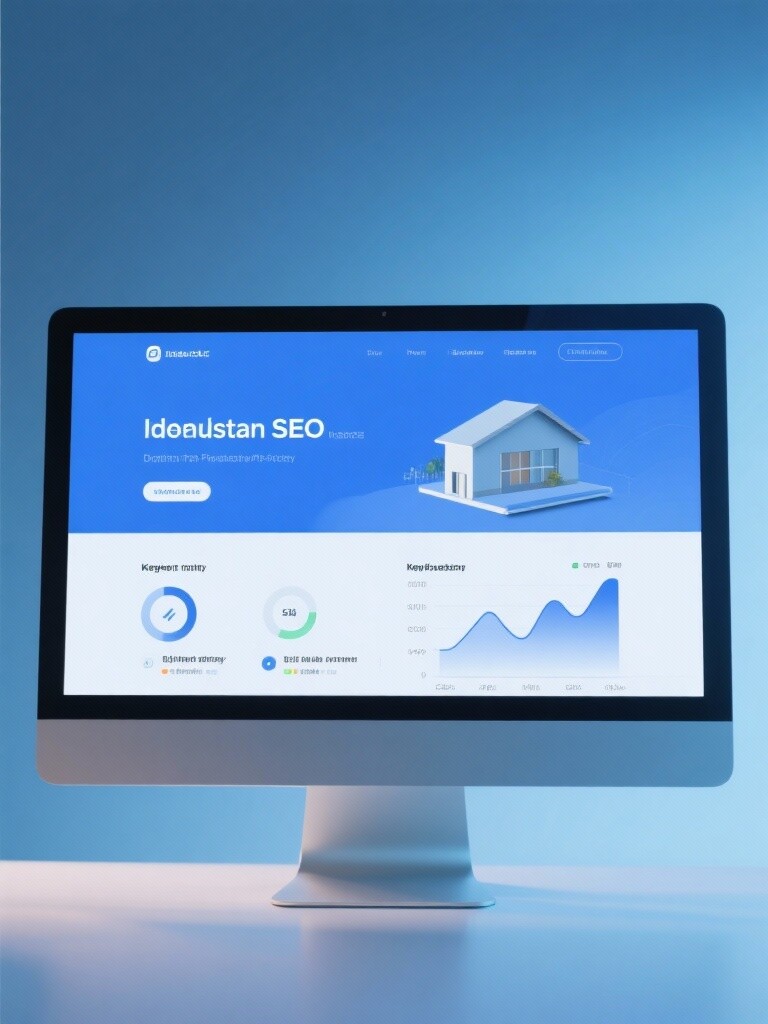
Customer Reviews
Mr. Tang, CEO of a D2C independent smart hardware website
"Initially, we relied entirely on paid advertising, which led to escalating costs and squeezed profit margins. EasyCare built a complete themed SEO system for us and performed deep Core Web Vitals optimization on our Shopify site. Nine months later, we successfully achieved first-page rankings on Google for several core long-tail keywords . Now, organic SEO traffic contributes more orders than paid advertising , and customer lifetime value (LTV) is significantly higher than that of advertising clients." . Independent website SEO truly brings us accumulative assets and sustainable profits.
Ms. Zhao, Marketing Director of a B2B independent website for exporting new materials.
"As a technology company, establishing industry authority is our top priority. E-Creative's independent website SEO strategy not only optimized our technical architecture but also guided us in creating high-quality white papers and case studies , and systematically deployed the EEAT trust signal . Now, our website's ranking for core industry keywords in Google search has significantly improved . Customers contacting us with inquiries already demonstrate a high level of professionalism, the average sales cycle has been shortened by 20 days , and the inquiry conversion rate has achieved a historic breakthrough ."
![Why do independent sites need SEO and what are their core benefits? Why do independent sites need SEO and what are their core benefits?]() Why do independent sites need SEO and what are their core benefits?Independent site SEO is a key strategy to obtain free and accurate traffic, reduce advertising dependence through long-term stable rankings, accurately match user search intent to improve conversion rates, while building brand authority and user experience optimization to achieve low-cost sustainable growth.
Why do independent sites need SEO and what are their core benefits?Independent site SEO is a key strategy to obtain free and accurate traffic, reduce advertising dependence through long-term stable rankings, accurately match user search intent to improve conversion rates, while building brand authority and user experience optimization to achieve low-cost sustainable growth.![Overseas Promotion Channel Comparison: Which Method Has the Highest ROI? Overseas Promotion Channel Comparison: Which Method Has the Highest ROI?]() Overseas Promotion Channel Comparison: Which Method Has the Highest ROI?This article systematically compares the input-output ratios of six major overseas promotion channels including Google search ads, social media marketing, and independent site SEO. Combining actual case studies from EasyTreasure AI's intelligent website building system and ad optimization tools, it provides data-driven channel selection strategies for businesses.
Overseas Promotion Channel Comparison: Which Method Has the Highest ROI?This article systematically compares the input-output ratios of six major overseas promotion channels including Google search ads, social media marketing, and independent site SEO. Combining actual case studies from EasyTreasure AI's intelligent website building system and ad optimization tools, it provides data-driven channel selection strategies for businesses.![Singapore Foreign Trade Independent Website Services, Customer Success Case Study Revealed! Singapore Foreign Trade Independent Website Services, Customer Success Case Study Revealed!]() Singapore Foreign Trade Independent Website Services, Customer Success Case Study Revealed!This article through the practical case of Singapore home goods brand NovaLiving, systematically elaborates on the technical advantages and operational value of Yvbox AI intelligent website construction system in foreign trade independent website building, covering multilingual adaptation, global CDN acceleration, AI content generation and other core modules, and includes 3 actionable SEO optimization techniques.
Singapore Foreign Trade Independent Website Services, Customer Success Case Study Revealed!This article through the practical case of Singapore home goods brand NovaLiving, systematically elaborates on the technical advantages and operational value of Yvbox AI intelligent website construction system in foreign trade independent website building, covering multilingual adaptation, global CDN acceleration, AI content generation and other core modules, and includes 3 actionable SEO optimization techniques.![Decentralized Marketing SEO Optimization Services, Breaking Traffic Monopolies! Decentralized Marketing SEO Optimization Services, Breaking Traffic Monopolies!]() Decentralized Marketing SEO Optimization Services, Breaking Traffic Monopolies!This article deeply analyzes the core value of decentralized marketing SEO, from intelligent independent website building, AI keyword optimization to global traffic ecosystem integration, revealing how to break platform traffic monopolies through technical means and providing practical solutions verified by over 100,000 businesses in Yiwu Treasure.
Decentralized Marketing SEO Optimization Services, Breaking Traffic Monopolies!This article deeply analyzes the core value of decentralized marketing SEO, from intelligent independent website building, AI keyword optimization to global traffic ecosystem integration, revealing how to break platform traffic monopolies through technical means and providing practical solutions verified by over 100,000 businesses in Yiwu Treasure.![Lacking an independent website SEO strategy? These tools can help! Lacking an independent website SEO strategy? These tools can help!]() Lacking an independent website SEO strategy? These tools can help!This article delves into how effective SEO tools can elevate your independent website's search engine rankings and visibility, empowering B2B enterprises to succeed in global markets. By exploring various tools' functionalities, use cases, and real-world applications, we provide clear optimization pathways. Key solutions like AI marketing engines, smart CMS platforms, and social media automation tools will help your business stand out in competitive markets.
Lacking an independent website SEO strategy? These tools can help!This article delves into how effective SEO tools can elevate your independent website's search engine rankings and visibility, empowering B2B enterprises to succeed in global markets. By exploring various tools' functionalities, use cases, and real-world applications, we provide clear optimization pathways. Key solutions like AI marketing engines, smart CMS platforms, and social media automation tools will help your business stand out in competitive markets.![Independent Site SEO Optimization Guide: Drive Sales with Targeted Traffic! Independent Site SEO Optimization Guide: Drive Sales with Targeted Traffic!]() Independent Site SEO Optimization Guide: Drive Sales with Targeted Traffic!This article explores the importance and implementation strategies of independent site SEO optimization, combining technical approaches with market demands to provide actionable recommendations for rapid business growth.
Independent Site SEO Optimization Guide: Drive Sales with Targeted Traffic!This article explores the importance and implementation strategies of independent site SEO optimization, combining technical approaches with market demands to provide actionable recommendations for rapid business growth.![Standalone Website SEO Optimization: New Strategies for High-Efficiency Traffic Generation Standalone Website SEO Optimization: New Strategies for High-Efficiency Traffic Generation]() Standalone Website SEO Optimization: New Strategies for High-Efficiency Traffic GenerationIn-Depth Exploration of New Standalone Website SEO Optimization Strategies to Help Foreign Trade Websites Achieve High-Efficiency Traffic Generation and Enhance Global Market Competitiveness.
Standalone Website SEO Optimization: New Strategies for High-Efficiency Traffic GenerationIn-Depth Exploration of New Standalone Website SEO Optimization Strategies to Help Foreign Trade Websites Achieve High-Efficiency Traffic Generation and Enhance Global Market Competitiveness.![AI Website Building Tools: Elevate Your Standalone Site's SEO Optimization AI Website Building Tools: Elevate Your Standalone Site's SEO Optimization]() AI Website Building Tools: Elevate Your Standalone Site's SEO OptimizationExplore how AI website tools improve your standalone site's SEO optimization, enabling your foreign trade website to excel in competition and boost global market expansion.
AI Website Building Tools: Elevate Your Standalone Site's SEO OptimizationExplore how AI website tools improve your standalone site's SEO optimization, enabling your foreign trade website to excel in competition and boost global market expansion.

